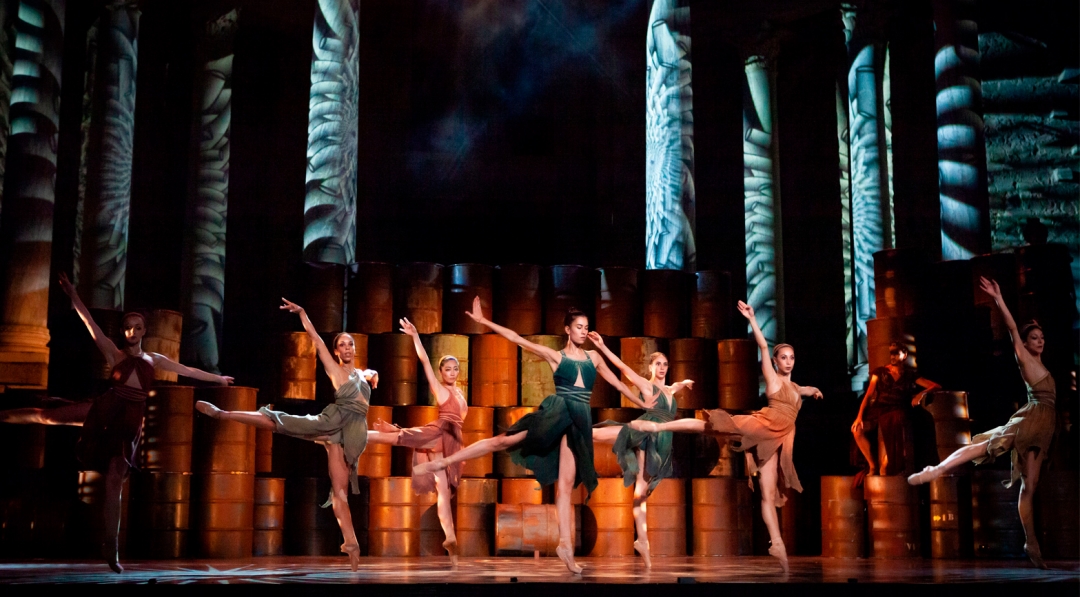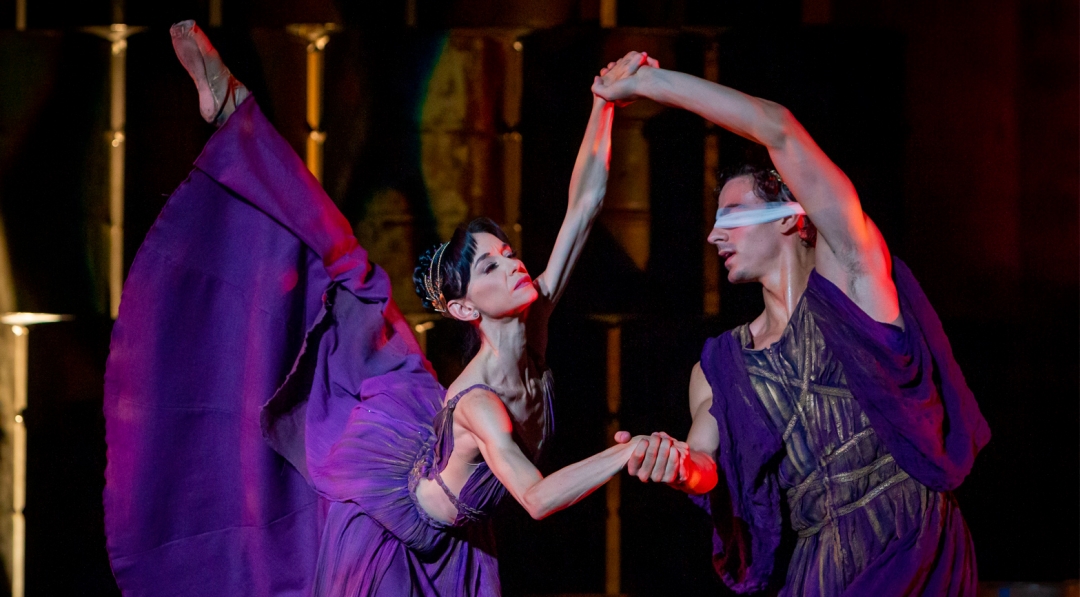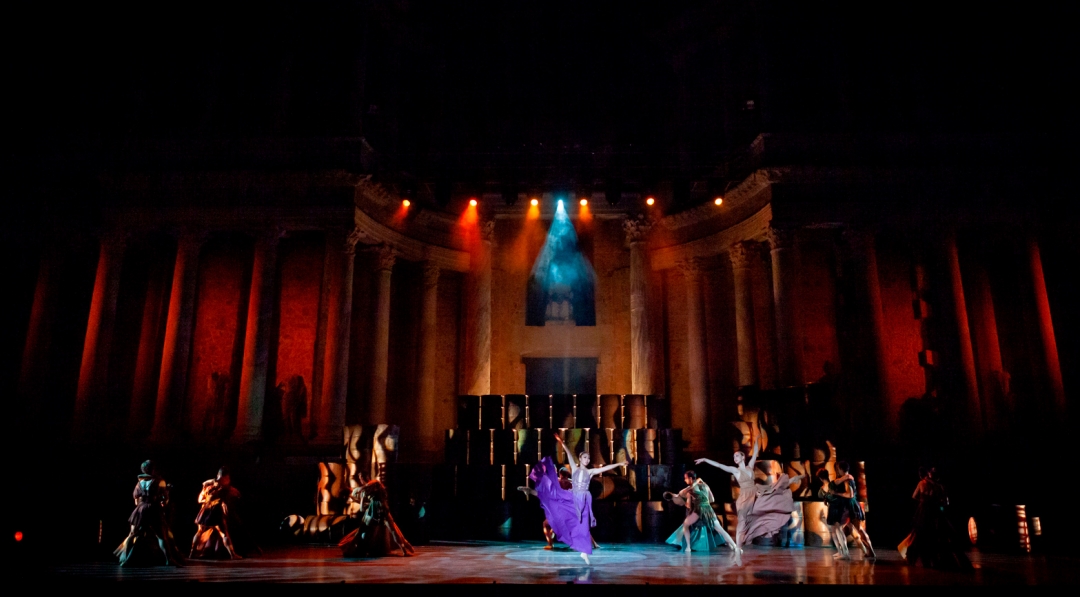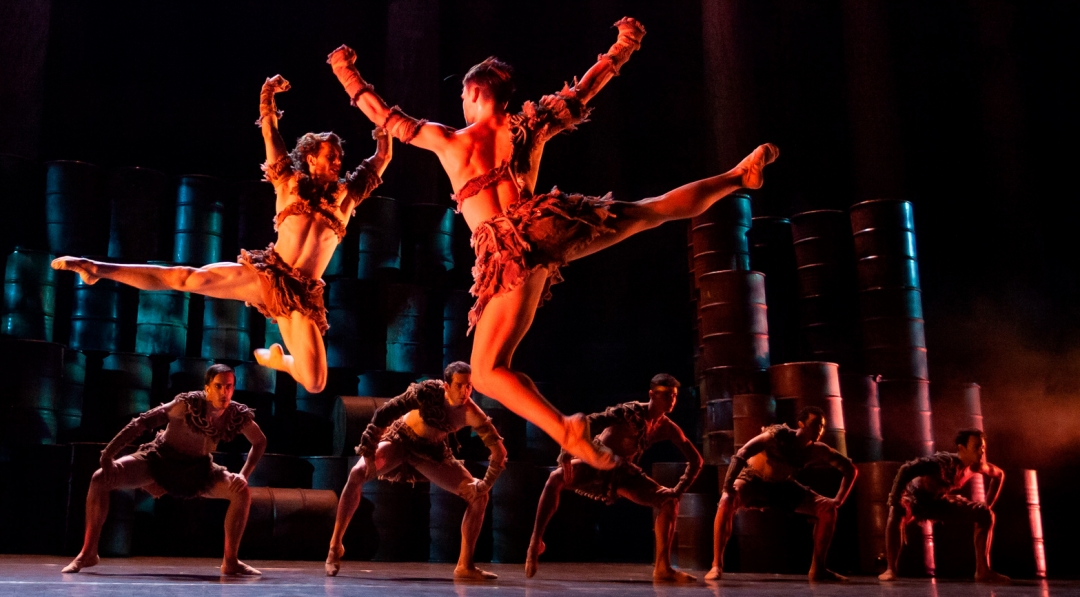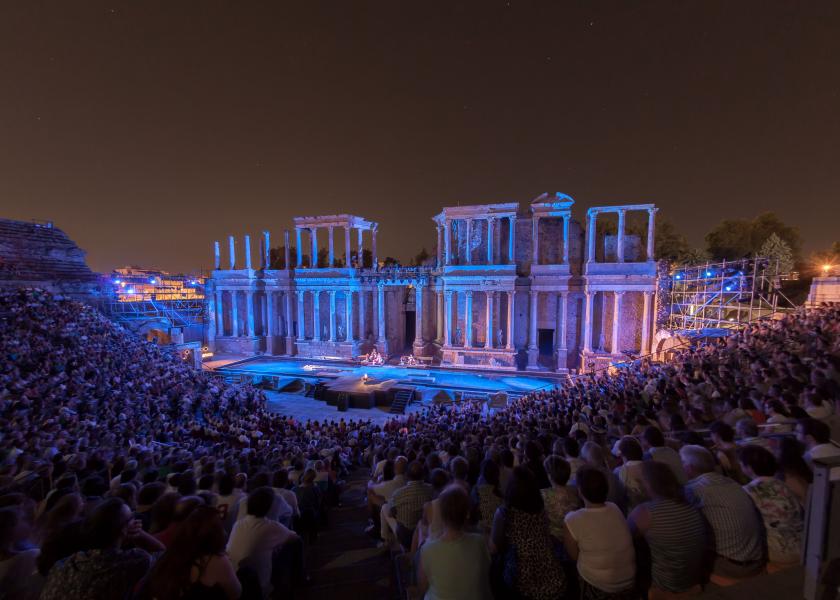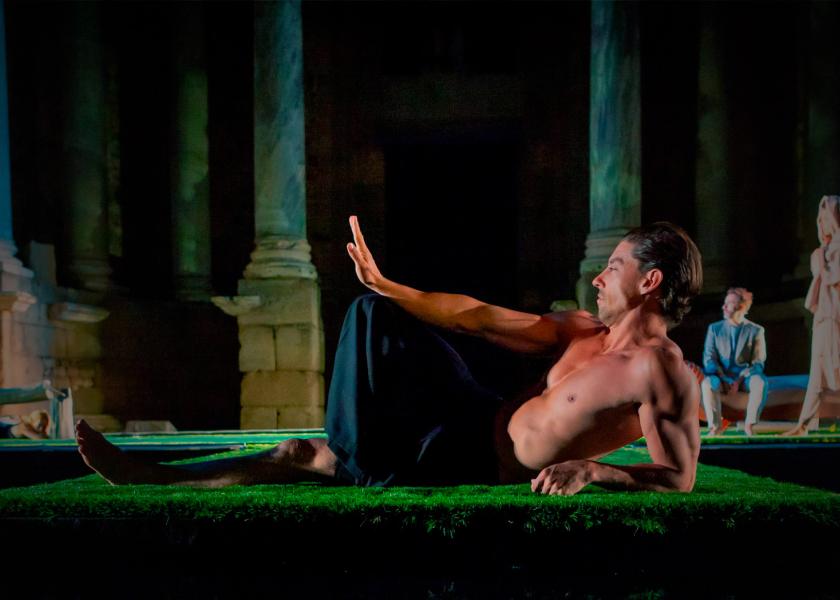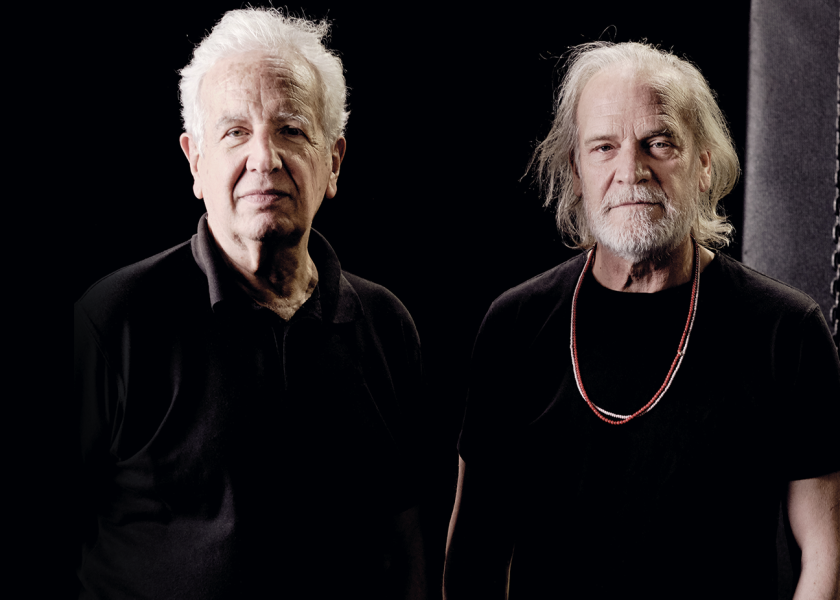Víctor Ullate
Goodbye with ‘Antigone’
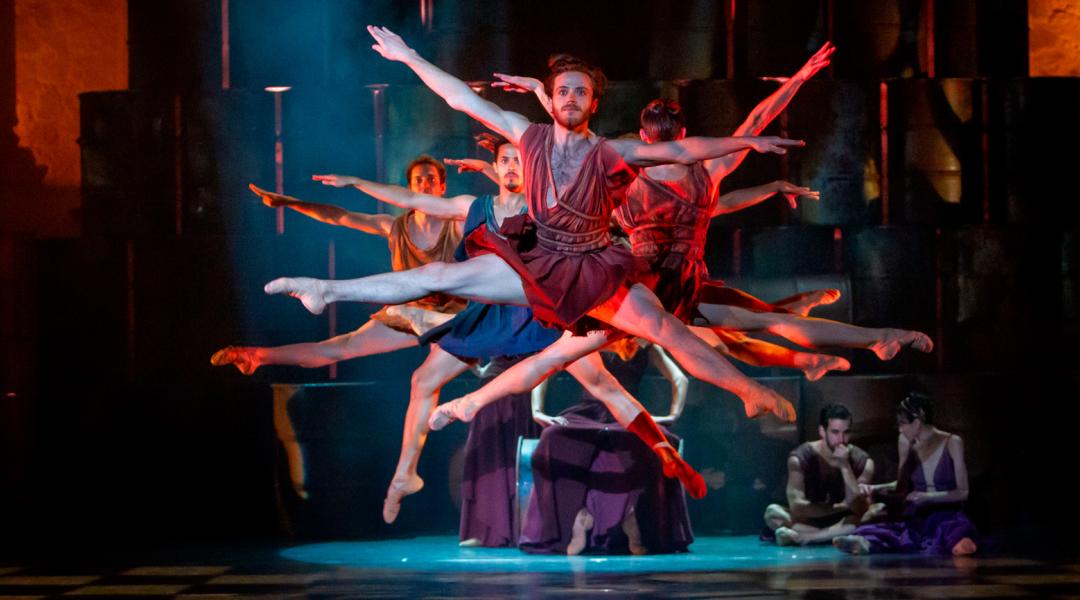
Choreographer and creator Víctor Ullate says goodbye to his audience after a career of almost forty years. And it does so with Sophocles’ tragedy 'Antigone', starring the great Lucía Lacarra, at Madrid’s Teatros del Canal until 8th September.
After almost four decades on the stage, Victor Ullate says goodbye to his audience. And like the great ones, he does so in style by taking on a character he feels totally identified with: “Antigona is just like me: strong and tenacious, poignantly courageous.” For Jesús Cimarro, director of the Mérida International Classic Theatre Festival, it was clear Víctor Ullate couldn’t retire without preforming this tragedy. Following a successful debut at the festival, Ullate is approaching his last stop with this take on the Greco-Roman play that is running at Madrid’s Teatros del Canal until 8 September.
In Ullate’s version, Sophocles’ tragedy—first performed in 441 BC—becomes a modern-day, staggering play revealing the timelessness of human feelings. Antigone embodies the conflict between conscience and obedience. It is the story of King Oedipus’ daughter, a young woman determined to bury her brother, killed in a battle to take control of Thebes. She performs the funeral rites on his corpse despite King Creon’s decree against his burial. It is the uncompromising rigour she displays, the belief that she is doing the right thing, what makes Antigone one of the most celebrated theatrical characters in history.
"Primarily inspired by each character’s conflict, we rely on the power of dance, since it enters the realm of universal emotions like no other art form,” says Ullate about the essence of this play whose direction and choreography he has shared with Eduardo Lago. The play stars internationally-acclaimed dancer Lucía Lacarra—trained by Ullate himself—as Antigone, and Josué Ullate as Hemón, Creon’s son in fiction and Ullate’s in real life. The chemistry between the two dancers makes this play a true work of art that will leave no one indifferent.
Víctor Ullate’s career is peppered with accolades—National Dance Award in 1989, Gold Medal for Merit in Fine Arts in 1996, Max Prize for Performing Arts in 2007, Gold Medal for Merit at Work in 2016, among many others—the result of the tenacity, effort and sacrifice of a life’s work. Even if he leaves the stage, Ullate knows he will never cease to be an artist—he carries it in his veins, and he is aware he will never be able to leave the world of dance for good. But now he wants to focus on his foundation, which will turn 20 in 2020, and on Casa de la Danza, a place where, according to his own worlds, children from all over the world will be able to dance and live. This project is a years-old wish he is determined to carry out. He lacks the space because it is part of his foundation, through which he will grant scholarships to disadvantaged children, or at a high risk of exclusion, with a talent for dancing.
Ullate has devoted his life to dancing and he will continue doing so. He admits he hasn’t lived off dancing but for dancing, sacrificing his personal life. After surviving several heart attacks, his only illness is his passion for dance. “I was successful abroad but I decided to stay in Spain to set a precedent, to train dancers here, and here I am!” And all this despite the economic struggles resulting from managing his own ballet company. Ullate has no qualms about acknowledging his wish to keep the company going has cost him blood, sweat and tears; it has also made him fall into debt. He calls for the government to provide more economic support to the world of dance, and says he feels like “Antigone, fighting against everything." On or off the stage, his fight will go on.
